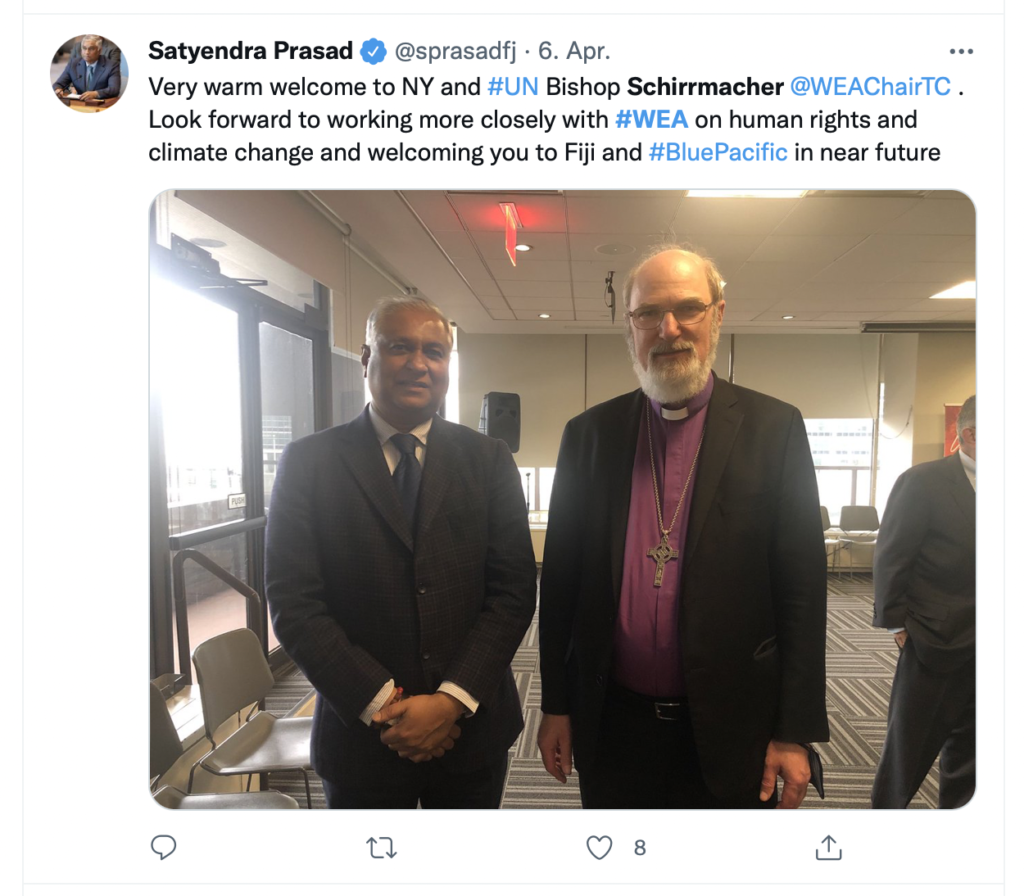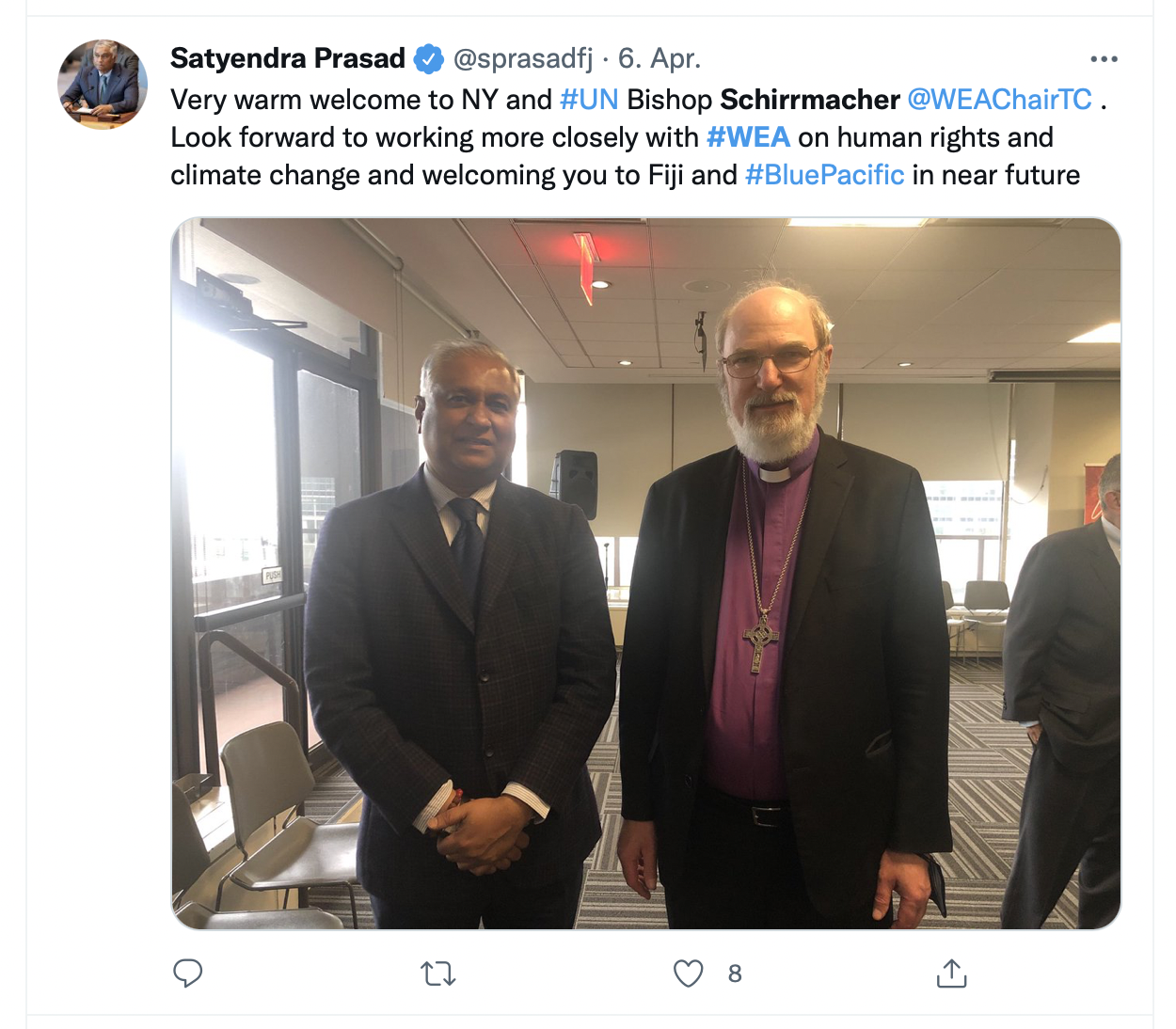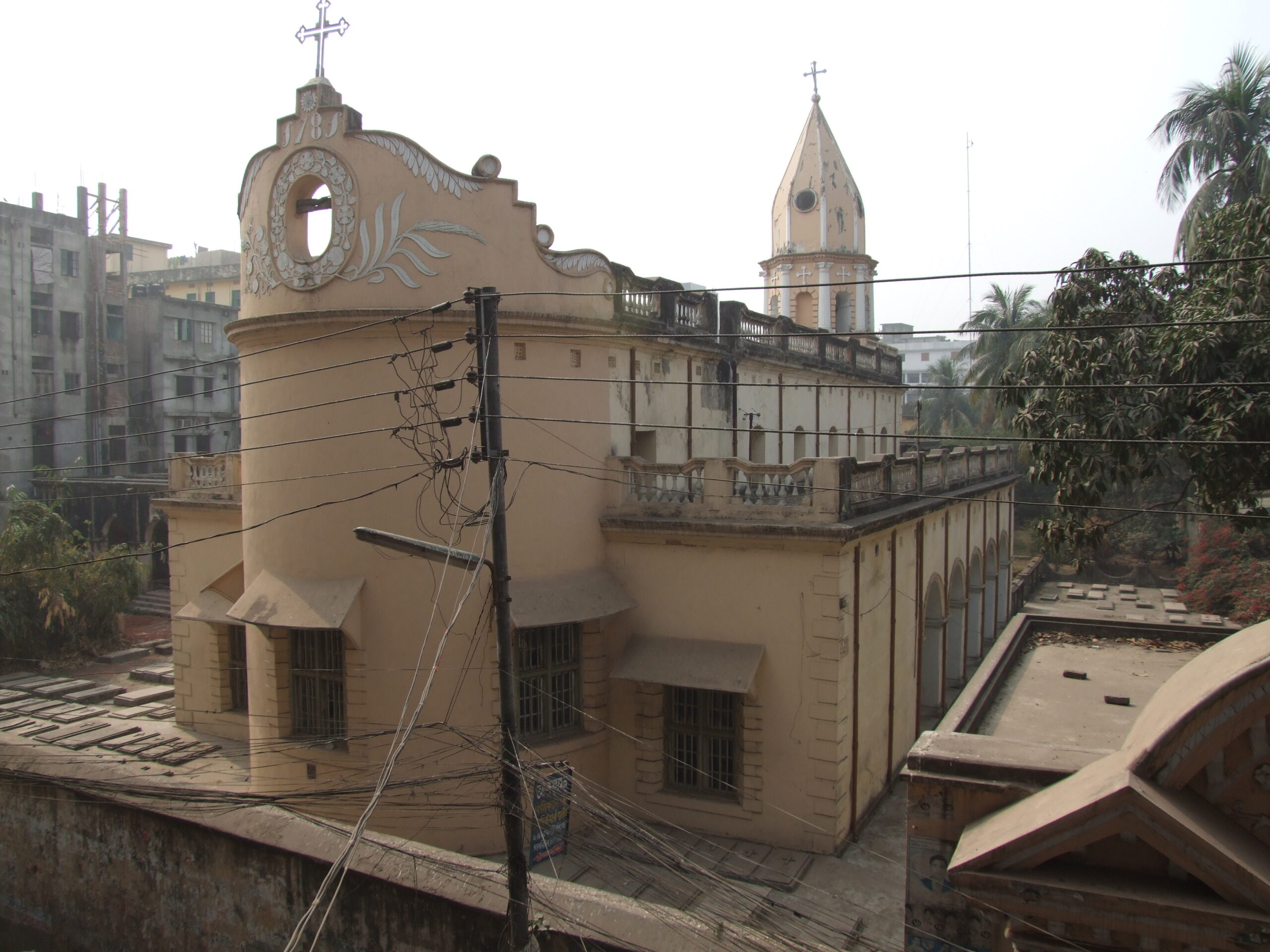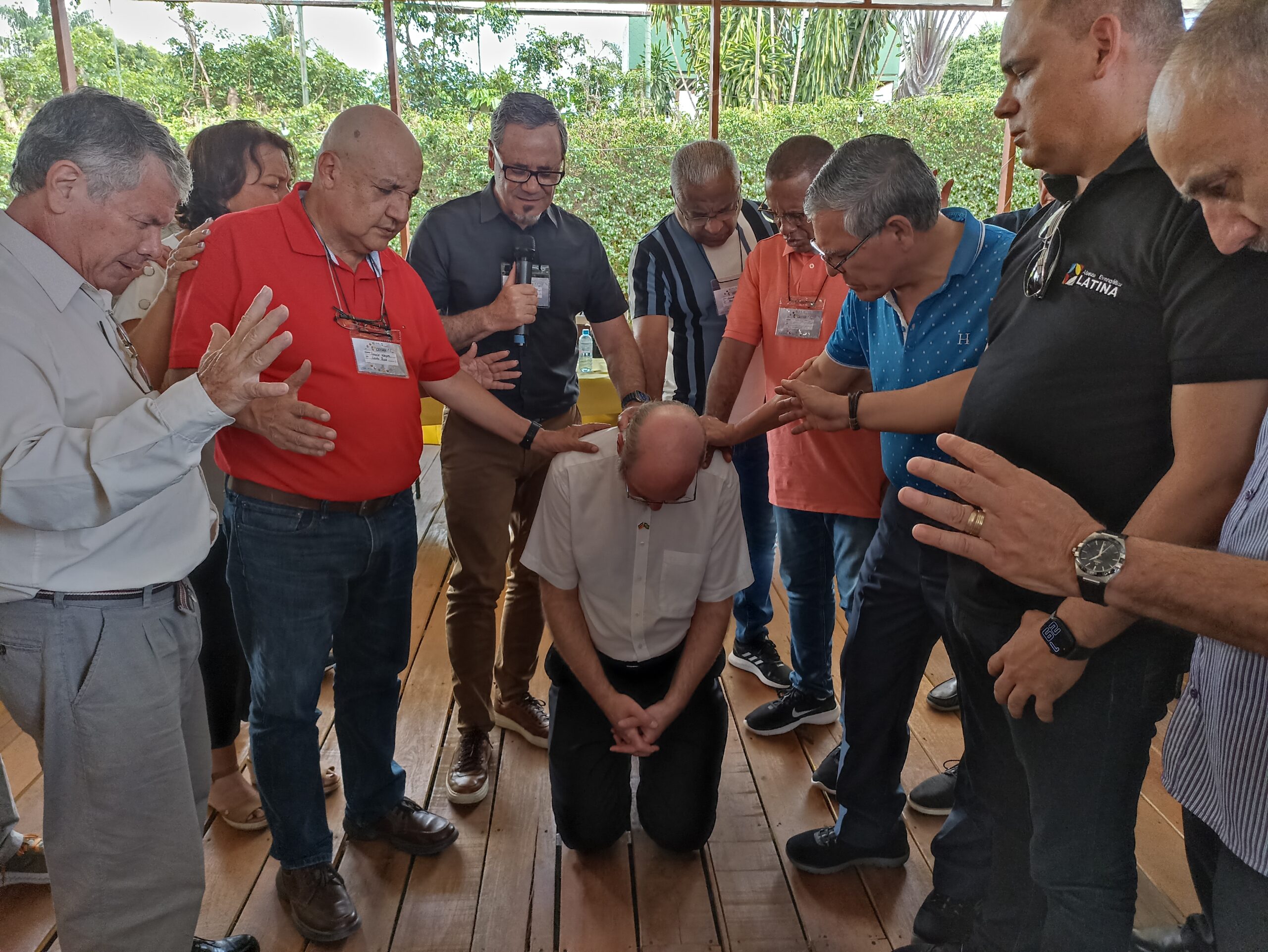This is what the Ambassador of Fiji wrote on Twitter: “Very warm welcome to NY and UN to Bishop Schirrmacher. Look forward to working more closely with WEA on human rights and climate change and welcoming you to Fiji and BluePacific in near future.”
Dr. Satyendra Prasad is the Ambassador and Permanent Representative of Fiji to the United Nations in New York. He is also Chair of Pacific Small States advicing Pacific Governments on climate and oceans issues both within UN processes; and in other multilateral settings such as the World Bank and the High Level Panel on Oceans. Pacific Small States is a cooperation of Fiji, Kiribati, Marshall Islands, Federal States of Micronesia, Nauru, Palau, Samoa and Solomon Islands.
Ambassador Prasad has previously worked as the CEO of the Papua New Guinea Governance Facility; aa senior adviser in the World Bank and in UK’s Department for International Development and has been an academic at Universities of the South Pacific (USP) in Fiji; at University College-Cork in Ireland and Ristumeikan Asia-Pacific University in Japan. Dr. Prasad studied at the University of the South Pacific (Fiji), University of New Brunswick (Canada), United Nations University (Tokyo) and Warwick University (UK).
Fiji, officially the Republic of Fiji, is an island country in Melanesia, part of Oceania in the South Pacific Ocean. It lies about 2,000 km northeast of New Zealand. Fiji consists of an archipelago of more than 330 islands—of which about 110 are permanently inhabited—and more than 500 islets, amounting to a total land area of about 18,300 square kilometres (7,100 sq mi). The most outlying island group is Ono-i-Lau. About 87% of the total population of 924,610 live on the two major islands, Viti Levu and Vanua Levu. About three-quarters of Fijians live on Viti Levu’s coasts: either in the capital city of Suva; or in smaller urban centres such as Nadi—where tourism is the major local industry; or in Lautoka, where the sugar-cane industry is dominant. The interior of Viti Levu is sparsely inhabited because of its terrain. Fiji has one of the most developed economies in the Pacific through its abundant forest, mineral, and fish resources. In 2014, after years of delays, a democratic election took place. The FijiFirst party won 59.2% of the vote, and international observers deemed the election credible.
Religiously, Fiji is a mixed society with most people being Christian (64.4% of the population), with a sizable Hindu (27.9%) and Muslim (6.3%) minority, according to the 2007 census. Religion tends to split along ethnic lines with most Indigenous Fijians being Christian and most Indo-Fijians being either Hindu or Muslim. Aboriginal Fijian religion could be classified in modern terms as forms of animism or shamanism, traditions utilizing various systems of divination which strongly affected every aspect of life. Fiji was Christianized in the 19th century. Today there are various Christian denominations in Fiji, the largest being the Methodist church. Hinduism and Islam arrived with the importation of large numbers of people from South Asia, most of them indentured, in the late 1800s and early 1900s.
Christianity came to Fiji via Tonga. As Tongan influence grew in the Lau Group of Fiji, so did Christianity under the Tongan Prince Enele Ma’afu. Its advancement was solidified further by the conversion of the emerging Dominant chieftain of Bau, Seru Epenisa Cakobau. The cession of 1874 saw a more dominant role within Fijian society as the old religion was gradually replaced by the new Christian faith. Most influential were the Methodist denomination, which is the majority today, but other denominations such as Catholicism and Anglicanism, amongst other offshoots such as Baptists, Pentecostal and others, are a part of current Fijian religion.
Dr. Satyendra Prasad
https://www.linkedin.com/in/satyendra-prasad-1116b822b/
https://en.wikipedia.org/wiki/Fiji
https://en.wikipedia.org/wiki/Religion_in_Fiji





